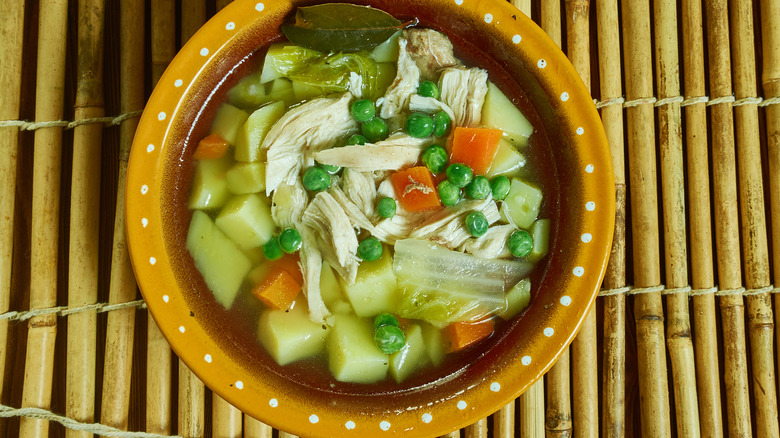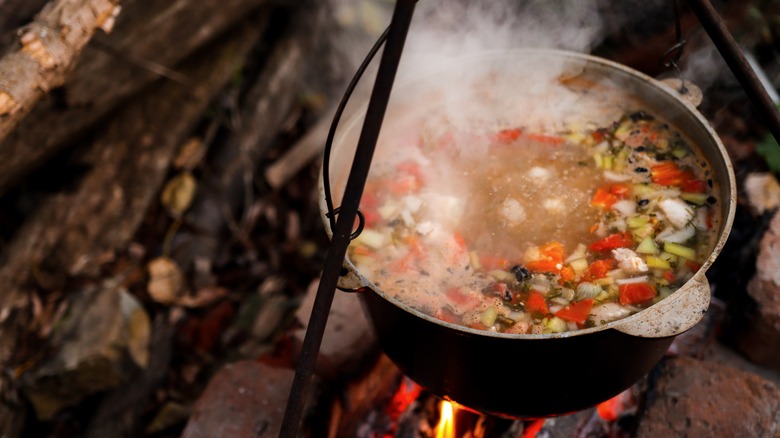Booyah Is The Midwestern Secret Stew With Belgian Origins
We look to Wisconsin for many of its food and drink traditions, like the brandy Old Fashioned and the bratwurst burger. But one of the best and little-known Sconnie delicacies is a steaming hot bowl of booyah. Yes, you read that right, booyah. Booyah is a veggie and meat stew that has its origins in Northeastern Wisconsin with ties to the Belgian immigrant community that inhabited the area in the 1800s, taking on the affectionate nickname "Belgian penicillin." The name booyah possibly comes from the French word "bouillon," which means broth, though this is somewhat contested as well, as some believe it actually came from the Walloon word for bouillon. There's even a story about a newspaper reporter mishearing the word and reporting it as booyah, though this can't be verified.
It's a recipe that has a ton of variations, in part because it's got an everything-but-the-kitchen-sink sensibility. That's because farmers in the area used whatever they had on hand at the end of the harvest period. "The farming community ... in the fall whatever they had left over, the vegetables, and the chicken, they would use it ... it just turned into something very very popular," chairman of the Belgian Heritage Center, Joe Alexander explains to WLUK. It's a beloved dish and is served at many community functions in the Green Bay region, but not really anywhere else, even throughout the state of Wisconsin.
A meal for the masses
Booyah is made with pork, chicken, and/or beef, as well as just about every veggie you can imagine. And it uses a lot of every ingredient because booyah is typically made to feed the masses. Most booyah recipes call for short ribs, chicken thighs, potatoes, rutabaga, peas, tomatoes, and cabbage, and that's not all. A combination of chicken and beef is fairly standard, but as you might have done as a first-generation Belgian immigrant, you use what you have. You can make scaled-down versions at home, but the classic booyah lunch that is a beloved tradition in Green Bay requires a giant kettle or stock pot over an open flame. And a lot, lot, lot of time.
A booyah is an event as well as a dish, and many communities start cooking their booyah lunch one entire day in advance, taking time to brown all the bone-in meats and preserve the fond and rendered fat for the next day's broth. And on the day of the event, they get to cooking before dawn in order to serve up at 5 p.m.! So to say that booyah is a labor of love is an understatement, to say the least.

